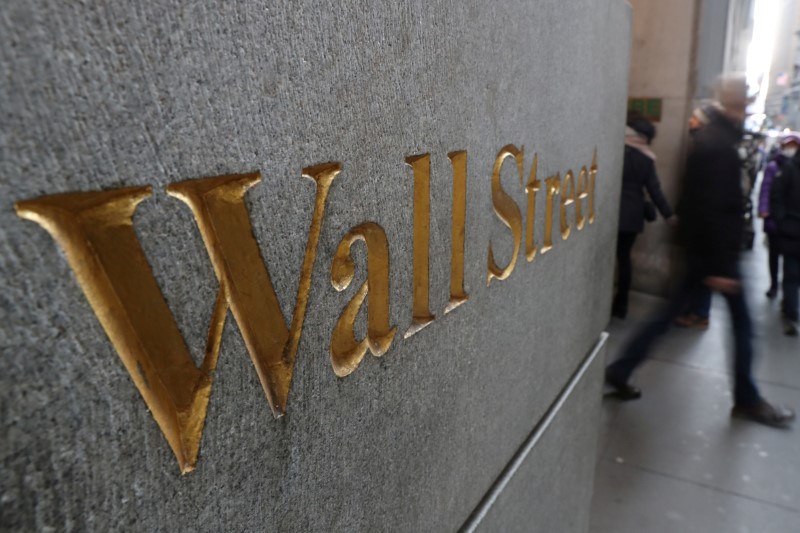This post was originally published on this site
https://i-invdn-com.akamaized.net/trkd-images/LYNXMPEG2O253_L.jpg
(Reuters) – More U.S. companies are rushing to adopt so-called poison pills, dusting off a nearly 40-year-old takeover defense tool to ward off hostile bidders and activist shareholders eager to exploit the coronavirus-induced market sell-off.
The S&P 500 Index has lost about a quarter of its value in the last month, as large swathes of the U.S. economy shut down and people stay at home to prevent the spread of the virus. This has made the shares of many companies cheaper and more vulnerable to approaches by corporate rivals and hedge funds.
Ten U.S. companies have announced poison pills in March, setting a record, according to FactSet Research Systems Inc and Deal Point Data LLC. Over the last 12 months through March 25, 44 poison pills have been adopted, double the number during the previous 12-month period, according to FactSet.
Poison pills prevent other companies and investors from amassing ownership stakes above a certain threshold, by authorizing the targeted company to sell new stock to its shareholders at a discount. Pioneered by corporate lawyer Martin Lipton in the early 1980s, their use can make amassing a stake in a company much more expensive.
Poison pills are often criticized by shareholders, as well as proxy advisers such as Institutional Shareholder Services and Glass, Lewis & Co, for their dilutive effect on ownership. As a result, they have been deployed sparingly by most companies in recent years, and are regarded as an emergency measure that enables the boards of targeted companies to remain in control.
Most poison pills, which are also referred to as shareholder rights plans, are adopted for a limited time, until the takeover threat subsides. Only rarely are they exercised once announced. Nevertheless, the spike in their adoption in the wake of the coronavirus outbreak highlights how vulnerable many U.S. companies feel to hostile bids and corporate agitators after their shares nosedived, corporate governance experts said.
“Companies have been adopting poison pills at a faster pace than we have ever seen in recent years. We expect more will be coming, many more,” said Lawrence Elbaum, co-head of law firm Vinson & Elkins LLP’s shareholder activism practice.
Oil and gas exploration and production company Occidental Petroleum (N:OXY), entertainment and restaurant company Dave & Buster’s Entertainment Inc (O:PLAY), petroleum refiner Delek US Holdings Inc (N:DK), natural gas pipeline operator Williams Companies (N:WMB), in-flight video content company Global Eagle Entertainment (O:ENT) and gourmet food and restaurant supply company Chefs’ Warehouse (O:CHEF) are companies that announced the adoption of poison pills in the last 10 days.
Occidental and Delek adopted poison pills to defend against billionaire investor Carl Icahn, while the other four companies unveiled poison pills following a plunge in their stock price, without disclosing a specific threat. All of them declined to comment or did not respond to requests for comment by Reuters.
Many companies have mobilized following warnings from their advisers. Goldman Sachs Group Inc (N:GS) warned clients in a memo last week that cash-rich hedge funds were buying stocks in the downturn with an eye to making demands on companies later, according to one of the memo’s recipients. The investment bank urged companies to discuss adopting poison pills with their lawyers.
Law firm Davis Polk & Wardwell LLP told clients in a memo last week that, while most poison pills cap ownership of any shareholders to around 15%, “a meaningfully lower threshold may be appropriate now.”
HEDGE FUNDS SEEKING TO CUT LOSSES
To be sure, many activist hedge funds that had significant stakes in companies suffered losses when the stock market plunged. Yet many bought more shares following the market sell-off, lowering their cost basis in hope of offsetting or reversing earlier losses when the stocks recover. This unnerved the companies they have been targeting.
“Unlike the bedrock American companies drained by the (coronavirus) crisis, there is ample dry powder in the coffers of some funds and companies to support the continuance of activist attacks and takeover raids,” Lipton, who is the founding partner of law firm Wachtell, Lipton, Rosen & Katz LLP, wrote in a note to clients on Wednesday.
Among the recent examples, Jana Partners raised its stake in restaurant chain Bloomin’ Brands (O:BLMN) two weeks ago to 9.2% from 7.4%. ValueAct Capital last week disclosed it increased its ownership of adventure cruises company Lindblad Expeditions Holdings (O:LIND) to 9.8% from 7.4%. Pershing Square (NYSE:SQ) Capital Holdings bought Starbucks Corp (O:SBUX) shares after having sold a previous stake earlier in the year, fund manager William Ackman told Reuters earlier this month.
“Hedge funds don’t see an economic crisis of epic proportions, they see an opportunity,” said Kai Liekefett, co-chair of law firm Sidley Austin’s shareholder activism practice.

